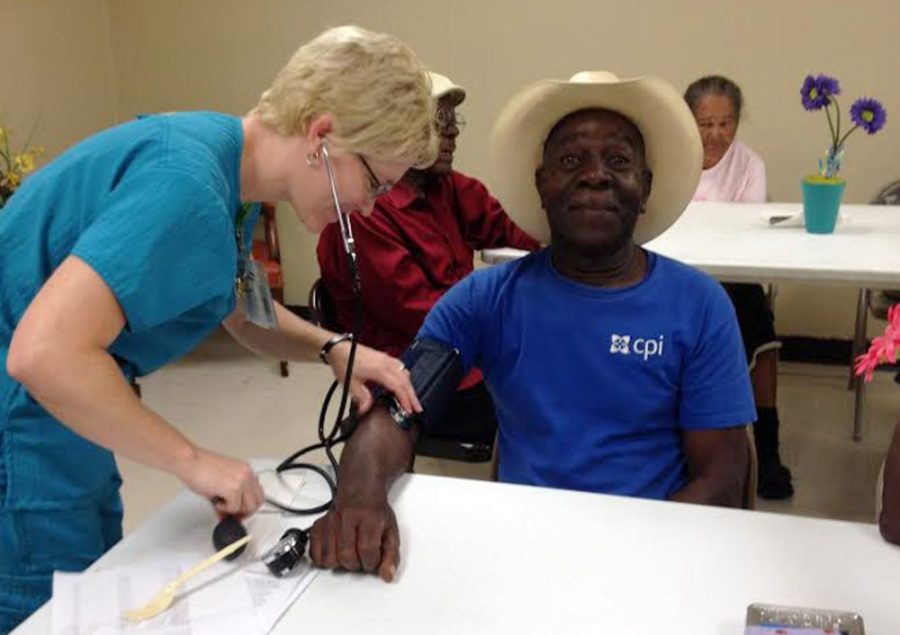A UA graduate student received a Ruth L. Kirschstein National Research Service Award, helping her work toward reducing health disparities in the U.S.
Heather Coats, a registered nurse for 18 years and a nurse practitioner since 2006, is a nursing graduate student pursuing a doctorate of philosophy in nursing through the UA College of Nursing’s online PhD program.
While Coats lives in Jackson, Miss., she is able to meet online with her mentor, Anne Rosenfeld, associate dean for research and a professor at the College of Nursing. Rosenfeld is chair of Coats’ dissertation committee and her sponsor for the National Research Service Award.
“She is a mentor extraordinaire,” Coats said.
Though Rosenfeld wasn’t initially her adviser, she became so after finding out about Coats’ past experiences, similar research methods and similar content area research.
Coats said she credits not only her mentor but the available resources at the UA as well for her achievements in the program.
“Between her and the Office of Nursing Research, they guided me through every step of the way,” Coats said. “Without them, without her, this … would have been impossible.”
Rosenfeld said not everyone who applies for the competitive fellowship receives it.
“Only the top percent get funded,” Rosenfeld said. “It’s very rigorous.”
Coats not only identified the gap in research concerning palliative and end of life care in African-American elders but was also innovative and successful in putting together a proposal, Rosenfeld said.
According to the National Institutes of Health website, the fellowship is intended to provide predoctoral students with supervised research training in specified health-related areas leading toward the research degree.
“NIH is very interested in funding research and also in preparing our next generation of researchers,” Rosenfeld said. “[Coats] is identified by them as someone who has very strong potential to be a successful research nurse scientist and conduct research over the next 20-30 years.”
Coats’ specific area of research is palliative care. She said palliative care is an all-encompassing type of care focusing on a holistic approach and is also known as patient-centered care for someone who is experiencing a serious illness. That can include symptom management, goals of care and advance care planning.
Coats’ dissertation on psychological, social and spiritual healing came from her belief that it’s necessary to look at the whole person as they’re going through a serious illness. Coats said she believes culture is a key factor to understanding how to take care of these patients.
“You can’t look at those three things without looking at the cultural aspect,” Coats said.
Although her short-term goal is to graduate in August 2015, when asked about the big picture, Coats said she hopes to work towards taking culture into account in order to provide better health care. “My end goal would be to impact the way we provide palliative care for minority groups, to really make a difference or an impact on incorporating that whole person,” Coats said.
Coats added that she wants to help patients along their journey as they live everyday with their serious illness, from diagnosis to end of life.
“That’s the big goal, the vision, the passion that keeps me going,” Coats said.
_______________
Follow Chastity Laskey on Twitter.









